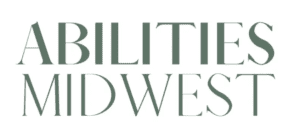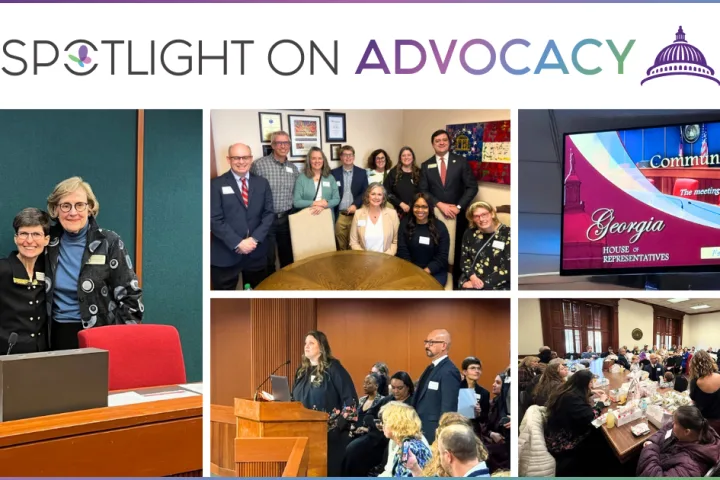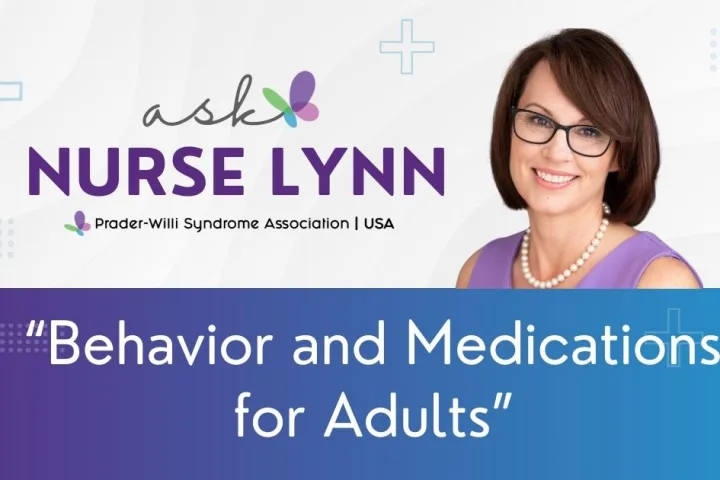Written by Kim Tula, MS, CSW
 Abilities Midwest is an adult residential provider in Wisconsin that only serves individuals diagnosed with Prader-Willi syndrome (PWS). They currently operate three PWS-specific group homes: One in River Falls, WI and two in Watertown, WI. All of these homes are licensed through the state of Wisconsin as an Adult Family Home (AFH). The homes provide 24-hour supervision and support services. This includes services based on individual need and shared support within the household.
Abilities Midwest is an adult residential provider in Wisconsin that only serves individuals diagnosed with Prader-Willi syndrome (PWS). They currently operate three PWS-specific group homes: One in River Falls, WI and two in Watertown, WI. All of these homes are licensed through the state of Wisconsin as an Adult Family Home (AFH). The homes provide 24-hour supervision and support services. This includes services based on individual need and shared support within the household.
Abilities Midwest is currently contracted with Wisconsin Managed Care Organizations - Inclusa, MyChoice, and Lakeland Care. However, they are able to provide support for individuals from other states, with permission from the home state’s Medicaid team. They have successfully obtained out-of-state funding through enrolling in the individual’s home state’s Medicaid program.
According to Katelyn Schmidt, owner of Abilities Midwest, each home supports anywhere from 1-4 individuals, depending on the size of the home. Currently, the house is River Falls, WI is home to four individuals, and the homes in Watertown, WI are each two-bedroom homes. The programs at Abilities Midwest only serve adults, with the current target age range of 18 to 35. However, they would someday like to open a home specialized for older individuals with PWS.
While the PWS programs at Abilities Midwest support a different number of individuals in each setting, they do staff the homes 24-hours a day with awake staff to ensure safety. The staffing pattern is dependent on the needs of the residents, but according to Katelyn, the typical staff pattern is one staff for every two residents during peak hours.
Although each of the programs at Abilities Midwest is different, they all ensure food is kept secure. In one of the homes, the kitchen is completely walled-off and secured with a door that only staff have a key to. In the other two homes, the kitchen is now enclosed but all food cabinets, refrigerators, freezers, etc. are kept locked.
According to Katelyn, Abilities Midwest does support individuals with higher levels of need due to behaviors, such as physical aggression and elopements. To help improve individual’s quality of life and decrease maladaptive behaviors, Abilities Midwest utilizes individualized support plans, behavior support plans, and incentive programing for all residents living within their programs. Abilities Midwest uses predictable, consistent quality care, set menus, set meal and snack times, and activity planning in order to remain proactive and reduce behaviors.
When asked about available day services and activities, Katelyn stated, “There are various options depending on what location within Abilities Midwest, however, all residents are encouraged to leave the home to participate in an activity on a daily basis, regardless on if they participate in a specific day program or not. All Abilities Midwest residents are encouraged to be active members of their communities.”
Currently, Abilities Midwest doesn’t have any non-conventional group homes for PWS. They utilize standard safety processes supported at the state and national PWS associations. Katelyn states, “Our homes are conventional in that sense.” When asked where she sees the future of PWS-specific group homes and support, Katelyn said, “We hope to continue to expand our program in order to meet a high-demand for specialized housing for individuals with PWS.”
Katelyn also wanted to share they expect Abilities Midwest to grow within the next year or two. “We do have a waiting list, although our waiting list does not operate on a first come, first served basis. We place residents depending on who we feel would be the best fit in each home. We want placements to be long-lasting, happy placements.
For more information regarding possible placement with Abilities Midwest, contact:
Katelyn Schmidt: katelyn@abilitiesmidwest.com
Jackie Mallow: jackie@abilitiesmidwest.com
Or visit their website at https://abilitiesmidwest.com/.
--------------------------------------------------------------------------------------------------------
This spotlight on Abilities Midwest is the 5th spotlight in PWSA | USA's residential series.
Share this!





 Perry A. Zirkel has written more than 1,500 publications on various aspects of school law, with an emphasis on legal issues in special education. He writes a regular column for NAESP’s Principal magazine and NASP’s Communiqué newsletter, and he did so previously for Phi Delta Kappan and Teaching Exceptional Children.
Perry A. Zirkel has written more than 1,500 publications on various aspects of school law, with an emphasis on legal issues in special education. He writes a regular column for NAESP’s Principal magazine and NASP’s Communiqué newsletter, and he did so previously for Phi Delta Kappan and Teaching Exceptional Children. Jennifer Bolander has been serving as a Special Education Specialist for PWSA (USA) since October of 2015. She is a graduate of John Carroll University and lives in Ohio with her husband Brad and daughters Kate (17), and Sophia (13) who was born with PWS.
Jennifer Bolander has been serving as a Special Education Specialist for PWSA (USA) since October of 2015. She is a graduate of John Carroll University and lives in Ohio with her husband Brad and daughters Kate (17), and Sophia (13) who was born with PWS. Dr. Amy McTighe is the PWS Program Manager and Inpatient Teacher at the Center for Prader-Willi Syndrome at the Children’s Institute of Pittsburgh. She graduated from Duquesne University receiving her Bachelor’s and Master’s degree in Education with a focus on elementary education, special education, and language arts.
Dr. Amy McTighe is the PWS Program Manager and Inpatient Teacher at the Center for Prader-Willi Syndrome at the Children’s Institute of Pittsburgh. She graduated from Duquesne University receiving her Bachelor’s and Master’s degree in Education with a focus on elementary education, special education, and language arts. Evan has worked with the Prader-Willi Syndrome Association (USA) since 2007 primarily as a Crisis Intervention and Family Support Counselor. Evans works with parents and schools to foster strong collaborative relationships and appropriate educational environments for students with PWS.
Evan has worked with the Prader-Willi Syndrome Association (USA) since 2007 primarily as a Crisis Intervention and Family Support Counselor. Evans works with parents and schools to foster strong collaborative relationships and appropriate educational environments for students with PWS. Staci Zimmerman works for Prader-Willi Syndrome Association of Colorado as an Individualized Education Program (IEP) consultant. Staci collaborates with the PWS multi-disciplinary clinic at the Children’s Hospital in Denver supporting families and school districts around the United States with their child’s Individual Educational Plan.
Staci Zimmerman works for Prader-Willi Syndrome Association of Colorado as an Individualized Education Program (IEP) consultant. Staci collaborates with the PWS multi-disciplinary clinic at the Children’s Hospital in Denver supporting families and school districts around the United States with their child’s Individual Educational Plan. Founded in 2001, SDLC is a non-profit legal services organization dedicated to protecting and advancing the legal rights of people with disabilities throughout the South. It partners with the Southern Poverty Law Center, Protection and Advocacy (P&A) programs, Legal Services Corporations (LSC) and disability organizations on major, systemic disability rights issues involving the Individuals with Disabilities Education Act (IDEA), Americans with Disabilities Act (ADA), and the federal Medicaid Act. Recently in November 2014, Jim retired.
Founded in 2001, SDLC is a non-profit legal services organization dedicated to protecting and advancing the legal rights of people with disabilities throughout the South. It partners with the Southern Poverty Law Center, Protection and Advocacy (P&A) programs, Legal Services Corporations (LSC) and disability organizations on major, systemic disability rights issues involving the Individuals with Disabilities Education Act (IDEA), Americans with Disabilities Act (ADA), and the federal Medicaid Act. Recently in November 2014, Jim retired.